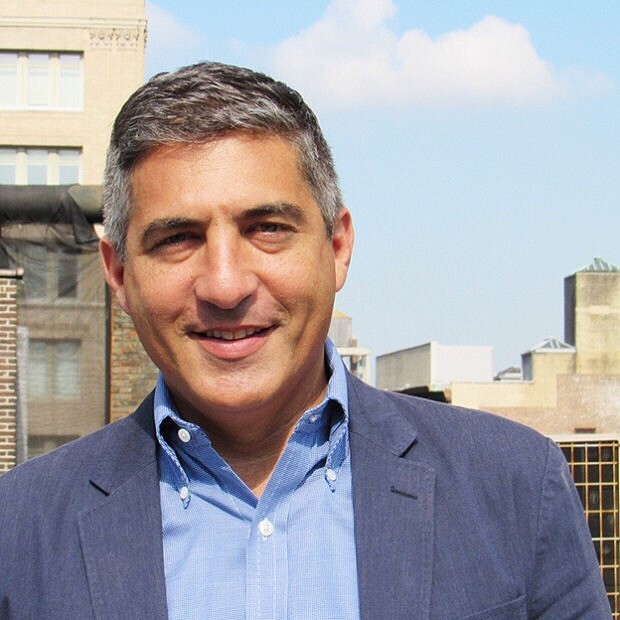NEW YORK (Reuters) – When it comes to cities in a global pandemic, reports of their demise have been greatly exaggerated, according to John Caplan.
As president of North America and Europe and global chief marketing officer for B2B e-commerce marketplace giant Alibaba.com, the born-and-bred New Yorker has a better feel than most for how the world’s urban centers are faring.
While some people have foreseen cities emptying out, he sees just the opposite. Caplan spoke to Reuters about the future of cities.
Q: A lot of people were predicting rough times for cities because of COVID-19, so what is your take on how this is playing out?
A: I’m an unequivocal optimist for New York City, and for urban centers globally. The pandemic was most fierce and challenging here first, and all of that was so tragic.
What is most important about New York is the diversity and creativity and ingenuity of the people who live here. To take one example, look at the outdoor dining renaissance: All of that disruption started here, but all of the innovation started here as well.
Q: Since you work for a Chinese company, did you get a very early sense that this virus was going to disrupt the way we live and work?
A: Having customers in 190 countries, Alibaba is a business window into the world. We did see a rapid shutdown inside China, with colleagues working from home and all the adjustments required to serve customers. So we did have some warning. Then the pandemic struck in NYC, and instantly we were all at home.
Q: How did you figure out how to manage teams in that environment?
A: We already had global teams navigating multiple time zones. If you’re a small business in Italy selling to customers in L.A., of course you’re working virtually with each other. We were doing the same thing we had always been trained to do. But I do think it helped level the playing field: If everyone is a 2×2 square on Zoom, then your contributions matter more than your title.
Q: Tech trends have certainly accelerated during this period – have you seen that on your own platform?
A: Businesses are recognizing that getting digital and going global is a strategic imperative because of the pandemic. In the U.S., there are 30 million small businesses, but the majority still do not export. We’re an ally to them in selling their goods to the world, and we’ve seen a rise not only in exports, but in sourcing goods from around the globe.
Q: Since your role requires going around the world, what’s your sense of how business travel will be affected?
A: In 2019, I spent 160 days on the road, the majority of those outside the U.S. In 2020 and 2021, I have traveled little, if at all.
I do think meaningful business travel will return, because trusted friendships often require interpersonal engagement. But traveling across the country just for a one-hour meeting will stop, and that’s likely good for families and communities. The standard is different now.
Q: You have written about the importance of going after a few big goals – why is that so key?
A: A lot of the things you try to do are going to fail. So you should swing hard and swing far in order to make a big impact.
Wherever you are in the lifecycle of the pandemic, one thing is clear to me: Do big things, with people who know how to get big things done. We’re in a crisis, and there is no room for noise. Sometimes companies make the mistake of trying to do too many little things.
Q: What are you looking forward to most as things get back to normal?
A: I like going to the Metropolitan Museum of Art, and walking through the galleries and seeing it full of people. I’m looking forward to the Halloween parade, and the Macy’s parade. Or when there is the first snowfall, and you walk down any street in Brooklyn, and it feels like magic.
New York is a special place where people meet to seek their highest ambitions and goals for their families and for society. New York is best when it’s on the rebound, and we are most certainly on the rebound right now.
I want to build companies here, I want to make friends here. I want to listen to music here. I’m not going anyplace.
(Editing by Lauren Young and Dan Grebler)
























